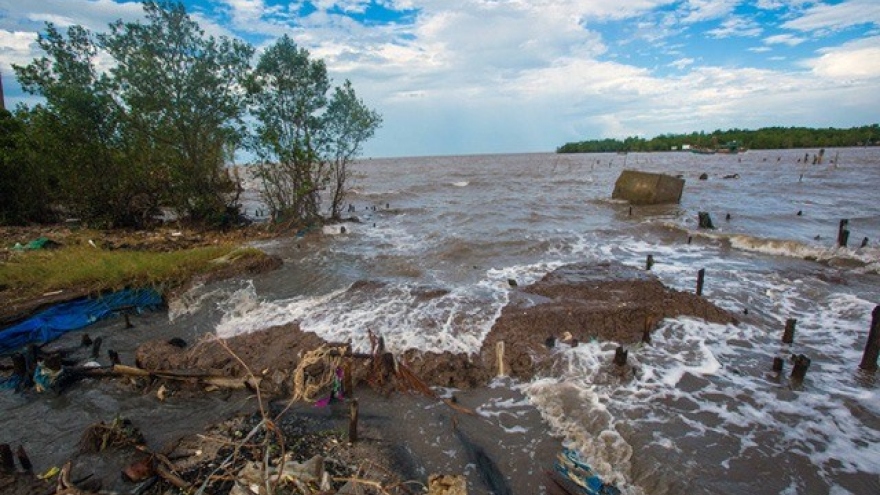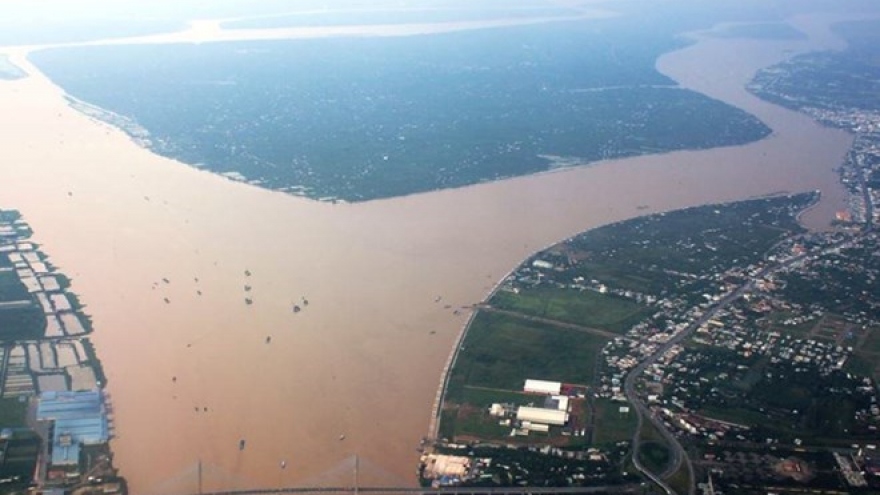Measures sought for sustainable development in Mekong River basin
Representatives from 17 cities and provinces of the Mekong Delta and Central Highlands gathered in Pleiku city, Gia Lai province, on March 14 to seek ways for sustainable development of the Mekong Basin.
 |
Five Central Highlands provinces has been included in the Vietnam National Mekong Committee, Minister of Natural Resources and Environment Tran Hong Ha, who is also the committee’s Chairman, told the committee’s plenary session, the first of its kind in 2018.
Amid the climate change, the rise and fall of rivers’ water levels in dry and flooding seasons cause serious impacts on the living and economic development of regional localities, he said, adding Vietnam has responsibility to work with Mekong River upstream nations on consultation on major policies and legal issues while implementing urgent projects and tasks related to the region, particularly the Mekong Delta and Central Highlands.
According to the Committee, the year 2018 is forecast to see variations in terms of hydrometeorology in the Mekong River basin. Climate change and extreme weather patterns will continue posing challenges for socio-economic development in the Mekong Delta and Central Highlands localities.
The Committee needs to review its tasks, study impacts of hydropower projects in the mainstream of the Mekong River, and develop adaptive measures for the situation.
Proposals will be submitted to the Government to prepare for the third Summit of the Mekong River Commission, slated for April in Siem Reap, Cambodia.
The Mekong (Cuu Long) Delta region in the lower Mekong basin has a total area of nearly four million hectares, accounting for 12% of the nation’s land area and five percent of the Mekong River basin. It contributes 50% of food, nearly 70% of aquatic product export, and 90% of rice export of the nation.
The Se San and Srepok Rivers in the Central Highlands are the two tributaries of the Mekong River. The basin of the two rivers, spanning the five regional provinces, provides water irrigation, industry, and daily life use, contributing to boosting local economic development and improving the living condition of residents.


